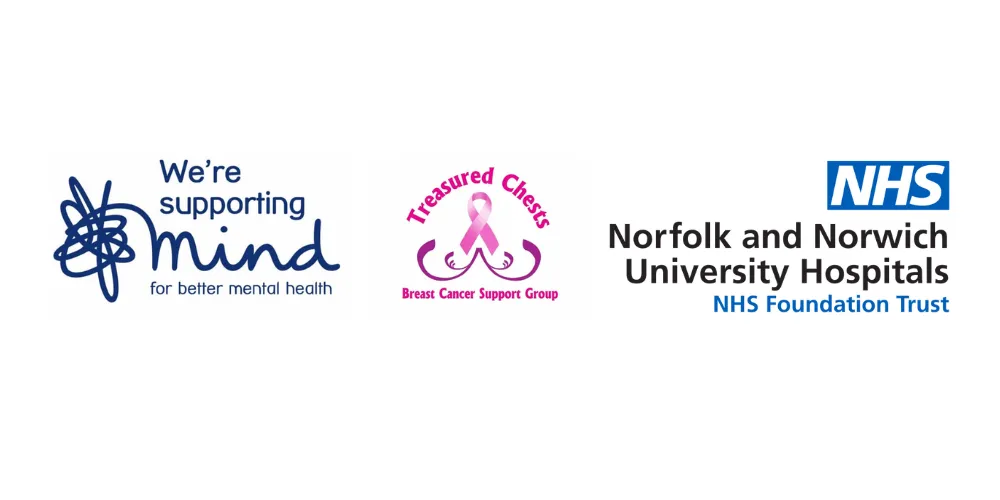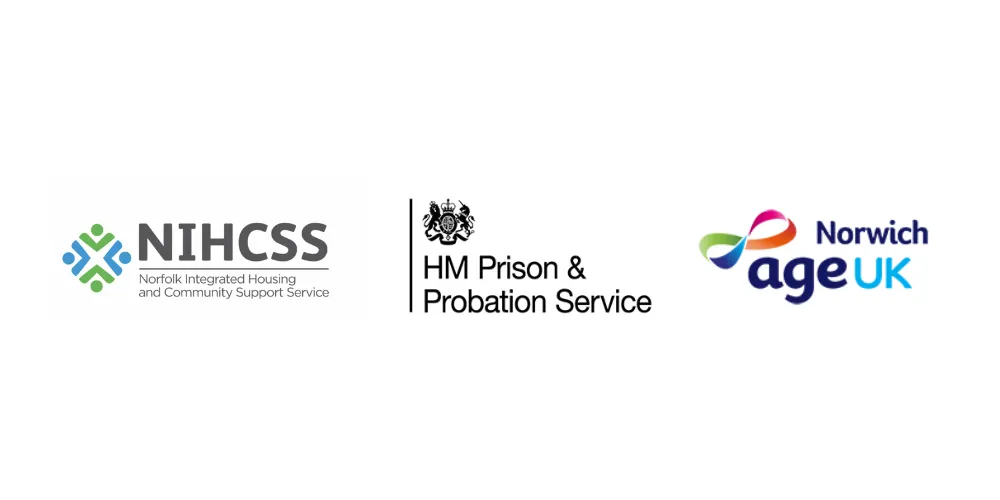

Elevate Your Practice: CPD-Certified Menopause Care Training for Health Professionals
Helping clinicians confidently diagnose, manage, and support patients through menopause

Bridge the Menopause Knowledge Gap in Healthcare
Enhance patient outcomes with our accredited CPD course on menopause management
“9 in 10 women feel their menopause symptoms are misunderstood”
Let’s change that together.
Why This Training is Essential for Today's Health Professionals
Misdiagnosis and Underdiagnosis: Many women experience menopause symptoms that are misattributed to anxiety, depression, or other unrelated conditions, leading to inappropriate referrals and delayed treatment.
Lack of Standardised Education: Despite menopause affecting half the population, most clinical training barely covers it, leaving professionals under-equipped to support patients effectively.
Patient Dissatisfaction and Risk of Harm: Without adequate care, patients lose trust and may seek unsafe alternatives online or disengage from healthcare services altogether.
Lack of Knowledge of Treatment Options: From outdated HRT myths to overlooked non-hormonal medications for those unable to take HRT.
Did You Know?
Many healthcare professionals are unaware of how giving general diet and exercise advice can either support or worsen menopause symptoms.
Did You Know?
Many healthcare professionals are unaware of how giving general diet and exercise advice can either support or worsen menopause symptoms.
Unlock Lasting Workplace Change with the BALANCE™ Method
Proven, practical tools to create healthier, more productive teams
My innovative, scientifically informed BALANCE™ Method addresses menopause holistically, covering biological, psychological, lifestyle, and workplace aspects. Through practical, tailored strategies, it delivers measurable outcomes, from boosting employee retention and enhancing patient care to empowering individuals with effective solutions.
The BALANCE™ Method:
B - Biology & Basics:
Understanding hormonal changes and their effects.
A - Associated Conditions:
Identifying related risks accurately.
L - Lifestyle & Dietary Interventions:
Evidence-backed strategies for symptom relief.
A - Awareness in the Workplace:
Inclusive policies and leadership education.
N - Navigating Symptoms & Treatments:
Structured, personalised management.

C - Collaborative Care:
Coordinating multidisciplinary support.
E - Empowerment through Education:
Equipping clients with knowledge and practical tools.
Why This Stands Out:
Clinical Expertise You Can Trust:
As a Senior Physiotherapist, Menopause Wellbeing Practitioner, best-selling author, and host of the podcast Menopause – The Real Deal, I bring both clinical knowledge and real-world healthcare insight to every aspect of menopause support.
Evidence-Based Tools:
The BALANCE™ Method is grounded in current clinical research and professional guidelines, offering practical, measurable strategies that enhance quality of care.Inclusive & Person Centred:
Designed to support a wide range of individuals, including women, transgender, non-binary, neurodiverse, and culturally diverse populations. This course helps professionals deliver truly inclusive care.
Cost-Effective Practice:
Reduce unnecessary prescriptions, repeated investigations, and inappropriate referrals. Improve staff retention and reduce absenteeism, especially among senior clinicians, by building a menopause-supportive workforce culture.
Immediate Implementation:
Gain immediately actionable strategies that can be integrated into patient care from the very first module.
Course Content:
- Duration: 60 hours of online learning, delivered across 6 modules (1 module per week)
- Accreditation: Earn 60 CPD points upon completion
- Curriculum Includes:
Module 1: Understanding Menopause
Lesson 1: Stages of Menopause
Learn what menopause is, how it typically unfolds, and why every woman's experience can look and feel different.
Lesson 2: Key Hormones in Menopause
Gain a clear understanding of the hormones involved in menopause and how their changes influence the body and mind.
Lesson 3: The Impact of Hormonal Changes
Explore the wide-ranging effects of hormonal shifts, from physical health to emotional wellbeing, and how these changes can show up in daily life.
Module 2: Understanding and Managing Symptoms
Lesson 1 Recognising Symptoms
Develop the ability to identify the broad spectrum of perimenopause and menopause symptoms in patients, including those frequently misattributed to other conditions.
Lesson 2: Symptom Tracking
Explore evidence-based tools and techniques for tracking menopausal symptoms, enabling you to assist patients in recognising symptom patterns and facilitating more accurate assessment and management.
Lesson 3: Optimising Consultations
Learn strategies you can use to conduct more effective menopause consultations, as well as how to advise patients on preparing for appointments to ensure their symptoms are clearly communicated and they receive the best possible support and treatment options.
Module 3: Treatment Options
Lesson 1 Hormone Replacement Therapy (HRT)
Learn about different types of HRT, their benefits, risks, and how they can be tailored to individual needs.
Lesson 2: Non-Hormonal Medications
Explore non-hormonal medications that help manage menopause symptoms for those who cannot or choose not to take HRT.
Lesson 3: Complementary and Alternative Therapies (CAM)
Discover how therapies like acupuncture, herbal supplements, and CBT can support menopause symptom management.
Module 4: Lifestyle Management
Lesson 1: Nutrition and Menopause
Understand how dietary choices can influence menopause symptoms and overall health. Learn which nutrients support hormonal balance and well-being.
Lesson 2: Exercise and Movement
Explore the benefits of different types of exercise for menopause and what can make them worse.
Lesson 3: Stress Management and Emotional Well-being
Discover techniques for reducing stress, improving emotional resilience, and supporting mental health during menopause.
Module 5: Menopause in the Workplace
Lesson 1: The Impact of Menopause at Work
Explore how menopause symptoms can affect performance, absenteeism, and workplace dynamics, and understand why workplace support is essential.
Lesson 2: Economic Impacts Of Menopause On Businesses:
Learn about the economic impacts of menopause on businesses, legal obligations, effective support strategies for employees, and actionable steps for policy implementation.
Lesson 3: Creating a Menopause-Friendly Workplace
Discover practical strategies for creating an inclusive and supportive work culture, including communication, adjustments, and awareness initiatives.
Module 6: Expanding Menopause Awareness
Lesson 1: Menopause Symptoms Across Professions
Explore menopause symptoms across healthcare settings and the roles of professionals in recognising and managing them effectively.
Lesson 2: Menopause for Transgender and Non-Binary Individuals
Understand the unique experiences and challenges faced by transgender and non-binary individuals during menopause.
Lesson 3: Cultural & Socioeconomic Perspectives on Menopause
Examine how cultural beliefs and socioeconomic factors shape menopause experiences and influence support strategies globally.
Michelle Rowlinson offers a range of tailored services designed for Businesses, Health Professionals, and Individuals
Whether you are looking to create a menopause-inclusive workplace, elevate your clinical practice, or receive personalised guidance, these programmes provide evidence-based support and practical solutions for everyone to thrive.

Why Choose Michelle Rowlinson?
A Menopause Wellbeing Practitioner, Michelle delivers tailored workshops and courses that build inclusive, menopause-supportive workplaces. Trusted by Age UK, the NHS, and HM Prison Service, her evidence-based approach enhances productivity, retention, and employee wellbeing.

Michelle Rowlinson
BSc Physiotherapy (Hons) | Menopause Wellbeing Practitioner
Why Choose
Michelle Rowlinson
A Menopause Wellbeing Practitioner, Michelle delivers tailored workshops and courses that build inclusive, menopause-supportive workplaces. Trusted by Age UK, the NHS, and HM Prison Service, her evidence-based approach enhances productivity, retention, and employee wellbeing.
Testimonials
What Health Professionals Are Saying
Improved Clinical Confidence
"This course transformed my approach to menopause care. I now feel equipped to support my patients through this critical life stage."

Comprehensive & Easy To Follow
"Well structured and easy to apply to real clinical situations. It helped me feel confident discussing symptoms and treatment options, even with complex cases."

Has Changed My Practice
"It was an eye opener the amount of symptoms menopause can cause or how it could affect other conditions a woman may already have."





Ready To Deliver Better Menopause Care?







